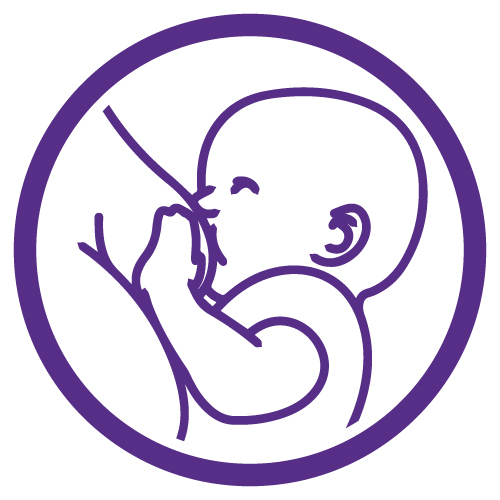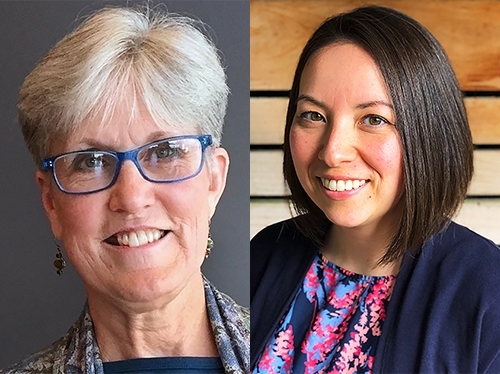
Interoception: Beyond the Homunculus....The Real Sixth Sense and Its Primary Function as Sensory Input to the Autonomic Nervous System

Michelle has been a pediatric neurodevelopmental Occupational therapist specializing in precrawling infants for over 26 years. She has specialty certifications and training in lactation, manual therapy, and pre and peri natal psychology. Michelle has specialized in optimal cranial nerve function and oral restrictions, with an emphasis on infant movement, innate biological imperatives and human potential, providing novel curriculums, support and resources for both professionals and parents. She enjoys collaborating and working in teams for babies and families going through the tethered oral tissues release process.
Topic: Breastfeeding and Cranial Nerve Dysfunction – the what, who and why of Cranial Nerve Dysfunction in the newborn to precrawling baby - [View Abstract]
Topic: Compensatory vs Novel Movements: 3 Keys for Babies With Tongue, Lip and Buccal Restrictions - [View Abstract]
Topic: Interoception: Beyond the Homunculus....The Real Sixth Sense and Its Primary Function as Sensory Input to the Autonomic Nervous System - [View Abstract]
Topic: The Vagus Nerve: Branchial Motor / Special Visceral Efferents: The Pharynx, Larynx, Soft Palate and one tiny tongue muscle - [View Abstract]
Topic: TummyTime!™ : A Therapeutic Strategy for Parents and Babies - [View Abstract]
Interoception is a term used to describe our nervous system's awareness of the sensations from the gastrointestinal and visceral system, as well as the primary sensory part/input to baby's Autonomic Nervous System. ANS function and regulation underlay all automatic processes of the body, from heart beat to breastfeeding and digestion function, as well as maintaining a calm state in order to engage in social interaction or to transition easily in and out of sleep. More simply put, interoception is "feelings from the body". In addition to visceral information, interoceptive pathways carry information related to affective touch, itch, temperature and pain and are delivered to a separate area of the brain, the insular cortex, which also contains a map of the body, similar to the well known homunculus. Interception plays a large role in dynamic equilibrium and autonomic regulation of tissues of the body. Interoceptive information and the processing is the basis of all important activity to optimize energy utilization. This system is often compromised in babies who present with complex oral dysfunction, tethered oral tissues, postural asymmetries, fussiness, gas, reflux or other dysregulation in function. How babies feel is mirrored in how they function, compromised function equals compromised interoceptive processing. This talk covers the basics of this system and practical clinical applications for precrawling babies to optimize neurodevelopment and breastfeeding abilities.

View Details / Enroll
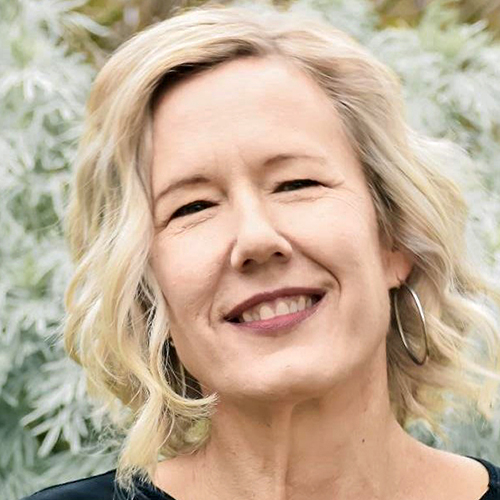

Dr. Gerner has been a Maternity and Pediatric Specialist in private practice for over 17 years with an additional focus on functional infant cranial work. She teaches other professionals to support breastfeeding across the USA and internationally. She is a wife, mother of 3 grown children, and lives in Northern CA with her husband and their 2 rescued dogs.
Topic: Introductions and Establishing the Value of Integration - [View Abstract]
Topic: Nitty Gritty Anatomy: The Cranium, Supporting Structure and the Muscle Layer - [View Abstract]
Topic: Tying It All Together- Consequences of Pathology and Ideal Collaboration - [View Abstract]
Breast is best! We all know that; however, often parent and child struggle so much at the beginning that breastfeeding either isn’t possible or the parent becomes discouraged and gives up. When feeding challenges occur, sometimes the problem is not with the mother’s technique, but rather with the baby himself- barriers within the alignment and tone of his body causing abnormal function and preventing normal breastfeeding. There can also be tethered oral tissues present (tongue or lip ties) causing even more dysfunction. This presentation focuses on: (1) why breastfeeding is best- nutritionally and neurologically; (2) The cause of imbalance- The birth process; (3) the importance of the integrative collaboration of therapists- i.e. the LC, DDS, chiropractor and/or cranial therapist.
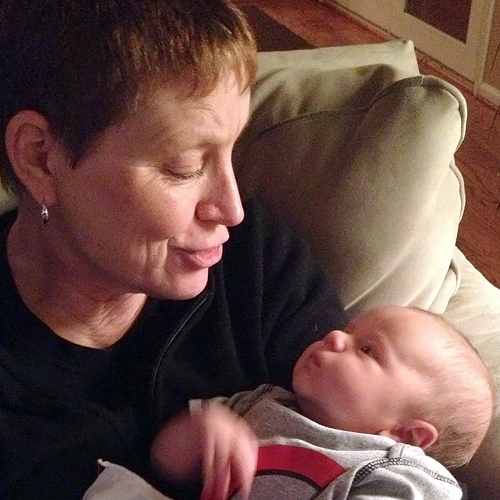
Is Sleep Really A Necessity? Nighttime Parenting With Multiple Infants

Karen Kerkhoff Gromada, MSN, RN, IBCLC, FILCA has been an IBCLC since 1991 and has worked as an IBCLC in both private practice and hospital settings. She also has experience as an adjunct clinical instructor for the University of Cincinnati College of Nursing and as a staff nurse in labor and delivery, childbirth education and postpartum discharge nursing care. Gromada was accredited as a La Leche League (LLL) Leader in 1975 and formed the first LLL group for mothers of multiples after the birth of her twin sons. The experiences of the group’s mothers provided the basis for her book Mothering Multiples: Breastfeeding and Caring for Twins or More. Her numerous articles and chapters about breastfeeding multiples have been published in professional and lay publications. A former International Lactation Consultant Association (ILCA) president (1994-96), she was designated Fellow of the International Lactation Consultant Association (FILCA) in 2008.
Sleep deprivation and disruption of an individual’s circadian patterns in the postnatal period are frequently cited as contributing factors in the development of postpartum depression, anxiety (PPD&A) or postpartum post-traumatic stress symptoms (P-PTSS). These factors are increased for the birthing parent of twins, triplets or more, who is more likely to bring two or more newborns home after experiencing perinatal complications and related interventions, and infants’ preterm birth, low birth weight and other complications, often resulting in neonatal intensive care unit stays. Even for a relatively ideal multiple pregnancy and birth, caring for two or more newborns – each having as many needs as any single-birth newborn – round-the-clock parenting generally leads to profound and often long-term sleep deprivation. When significant sleep deprivation affects a parent’s daytime behavior, all family members are affected. Yet current “safe sleep” recommendations or nighttime strategies promoting better sleep for parents and a single infant, including safer bedsharing techniques, are more difficult logistically to implement. These recommendations and strategies may also be less safe to implement with multiple infants. This session will examine the factors contributing to disruptive sleep for parents of multiples and develop strategies that meet both infants and parents needs for adequate sleep.


Sarah is a Registered General Nurse, Health Visitor, International Board Certified Lactation Consultant and Tongue-tie Practitioner with a busy private practice based in Cambridgeshire, UK. Sarah is a founder member and former Chair of The Association of Tongue-tie Practitioners and has written a book for parents and professionals, ‘Why Tongue-tie Matters’. Sarah lectures nationally and internationally on infant feeding and tongue-tie.
Topic: COVID-19 and Implications for Tongue-Tie Division in Infants - [View Abstract]
Topic: Is This a Tongue-Tie: How Do We Decide? - [View Abstract]
Topic: The Elephant In The Room - Bleeding Post Tongue-Tie Division - [View Abstract]
This presentation will discuss the difficulties that surround defining and assessing for tongue-tie. It will explore what we know about the role of the tongue in infant feeding by reviewing evidence from ultrasound studies and other research on latch and examining what this tells us about the normal functioning of the tongue. Various available assessment tools will be described along with how these may assist in differentiating between a normal and abnormal lingual frenulum. Also discussed will be other causes of tongue restriction and how to differentiate these from an abnormal lingual frenulum.

It Takes a Village: Understanding the Role of and Integrating Extended Family in the 4th Trimester.

Rue Khosa, AKA The Boob Boss, is the owner/founder of The Perfect Push, a lactation and parenting wellness clinic in downtown Redmond. She is a board certified family nurse practitioner, lactation consultant and a THRIVE parenting educator. Rue was born and raised Zimbabwe, where family plays a critical role in supporting expectant and new parents. This type of communal caring, called “kugarira”, helps families prepare for a new baby both emotionally and physically and guides them through the often challenging newborn period. Rue created The Perfect Push to bring that experience to Seattle. Rue began her women’s health career as a labor and delivery nurse over 10 years ago, at Washington Hospital Centre in DC. She received her graduate degree from Georgetown University, and her undergraduate degree from the University of Maryland, Baltimore. Prior to opening her private practice, Rue was a Teaching Associate in the Department of Family Medicine at the University of Washington’s School of Medicine and an Adjunct Clinical Faculty at Northwest University Buntain School of Nursing. In July 2019, Rue was commissioned by the Mayor to the City of Redmond’s Human Services Commission. In February 2020, Rue was invited to join Washington State Hospital Association's Safe Delivery Roadmap Commission. She sits on their Birth Equity task force working on program development. She also sits on the board of No More Under, a non profit organization committed to drowning prevention and awareness. Outside of redefining the childbirth and parenting experience, Rue is a mother of two young boys with a third on the way. She lives in Redmond, WA with her husband, mother and boys.
American culture values self-sufficiency and celebrates self-sacrifice in the name of success. The idea of community and communal living is fast becoming a thing of the past. Children graduate, go off to college, start careers and families seldom looking back. Moving back home or moving back to one’s old neighborhood is now unheard of. The result has been the rise of the nuclear family and the fall of the generational knowledge that supported breastfeeding and identified new moms at risk of perinatal mood and anxiety disorders.
This talk will explore the importance of restoring and improving community and peer breastfeeding support and identifying barriers to success. Lactation providers will learn how to identify importance and the role extended family and how to include them without violating our patients privacy. Attendees will gain insight on health disparities and the historical significance of breastfeeding in communities of colors. Last but not least, the talk will highlight the importance of providing culturally sensitive and appropriate care.

View Details / Enroll

View Details / Enroll


Kathleen Kendall-Tackett, PhD, IBCLC, FAPA, is a health psychologist and International Board Certified Lactation Consultant, and the Owner and Editor-in-Chief of Praeclarus Press, a small press specializing in women's health. Dr. Kendall-Tackett is Editor-in-Chief of two peer-reviewed journals: Clinical Lactation and Psychological Trauma. She is Fellow of the American Psychological Association in Health and Trauma Psychology and Past President of the APA Division of Trauma Psychology. Dr. Kendall-Tackett specializes in women's-health research including breastfeeding, depression, trauma, and health psychology, and has won many awards for her work including the 2017 President’s Award for Outstanding Service to the Field of Trauma Psychology from the American Psychological Association’s Division of Trauma Psychology. Dr. Kendall-Tackett has authored more than 460 articles or chapters and is author or editor of 38 books.
Amy Brown, PhD, Professor, is based in the Department of Public Health, Policy and Social Sciences at Swansea University in the UK. With a background in psychology, she has spent the last thirteen years exploring psychological, cultural and societal influences upon infant feeding decisions in the first year. Her research seeks to understand how we can shift our perception of how babies are fed away from an individual mothering issue to a wider public health problem – with societal level solutions. Dr Brown has published over 60 papers exploring the barriers women face in feeding their baby during the first year. She is a mother to three human children and three book babies: Breastfeeding Uncovered: Who really decides how we feed our babies, Why starting solids matters, and The Positive Breastfeeding Book: Everything you need to feed your baby with confidence. She is a regular blogger, aiming to change the way we think about breastfeeding, mothering and caring for our babies.
Nekisha Killings, MPH, IBCLC, LLLL, is an experienced marketer, writer, equity strategist, and international board certified lactation consultant. After spending years in consumer-packaged goods marketing and community partnership building, followed by a decade of public relations and ghostwriting, she found her life’s work in lactation support and maternal and child health equity through her personal experiences with birth and breastfeeding. Nekisha contributed the chapter on Cultural Humility in the latest Core Curriculum for Interdisciplinary Lactation Care. She acts as equity strategist for lactation-related organizations that seek to better reach underserved communities. Recently, she co-founded Nikki & Nikki: Lactation Career Consultants, an organization dedicated to equipping aspirants of color to sit the IBCLC exam. In addition to being spouse to an active duty United States Air Force member, Nekisha also homeschools three little future world changers and enjoys writing and research on the impact of historical trauma on families’ breastfeeding experiences today.
We don’t often think about “marketing” breastfeeding/chestfeeding and human milk, but when it comes to public health messaging, that’s exactly what we’re doing. Marketing is defined as “the action or business of promoting and selling products or services, including market research and advertising”. Recent public health campaigns have been successful at increasing breastfeeding initiation rates, but the duration of exclusive breastfeeding remains low, certain groups that question the safety of exclusive breastfeeding are gaining traction, and lactation professionals continue to be seen as “pushing breastfeeding” and causing feelings of guilt of shame. Clearly it is time for a change. This panel of experts will look at the reasons why marketing of breastfeeding and human milk is important, the impact of recent marketing campaigns, and what we could be doing better.

View Details / Enroll

View Details / Enroll
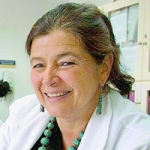
Kangaroo Mother Care Now and Then: 30 Years of KMC Clinical and Research Experience in a Developing Country

Dr Nathalie Charpak is currently the scientific coordinator and an attending paediatrician at the Kangaroo Mother Care program of the San Ignacio University Hospital. In addition, she is a founding member, senior researcher and director of the “Fundacion Canguro” in Bogotá, Colombia since 1994. Dr Charpak received her M.D. from the “Paris Sud” University and her paediatrician diploma from “Rene Descartes” University in Paris, France. She migrated in 1986 to Colombia where she validated her title as Paediatrician and begin in 1989 to work on the evaluation of the Kangaroo Mother Care (KMC) program. She is now a Colombian citizen. With several colleagues she founded in 1994 the “Fundacion Canguro” in Bogotá, an NGO devoted to research, teaching, training and direct medical care related to KMC method for premature infants that besides conducting large clinical trials on KMC has been actively disseminating the method mainly in low and middle income countries in Latin America, South East Asia, India, Africa and Eastern Europe. In 1996 in Trieste Italy she was among the group of international researchers, physicians and nurses who founded the International Kangaroo Network -INK- an international alliance devoted to collaborating, enhancing and disseminating the KMC method. Dr Charpak continues to work as an attending paediatrician in the KMC program and his current research interest is in integrative methods for summarizing and putting into action what is known about KMC in the form of evidence-based clinical practice guidelines. She is also recently involved as coordinator in conducting evaluations of long term (adolescents and young adults) neurodevelopment outcomes in preterm infants exposed or not exposed to KMC during the neonatal period.
The Kangaroo Mother Care (KMC) Method is primarily targeting the preterm and/or LBW infants once they are stabilized and adapted to extra-uterine life. KMC has three mayor components: kangaroo position (KP) or direct skin-to-skin contact between the mother and the baby; the kangaroo nutrition (KN) based on exclusive breastfeeding and the kangaroo discharge policies: early discharge in KP at home or in a KMC ward under strict follow up. KMC is a tool for humanization at all levels of neonatal care. There is sound scientific evidence for the effectiveness and safety of KMC in terms of mortality, early infectious morbidity, development, promotion and maintenance of breastfeeding. Also, there is evidence for the beneficial effects of KMC on establishing healthy bonding between mothers and infants. Many health professionals consider KMC as a means of protecting the immature brain when it is the most fragile and the results of our long term follow up are supporting this hypothesis.

View Details / Enroll
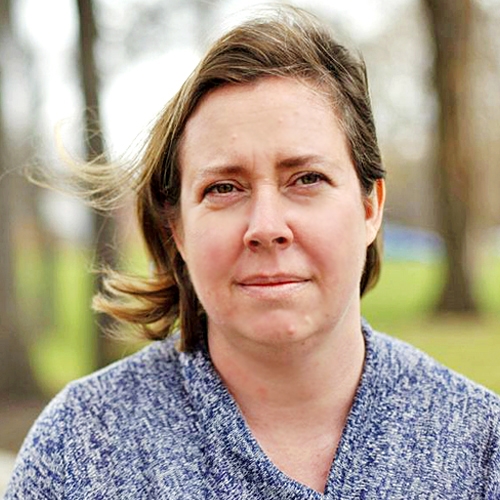
Keeping the Fox Out of the Chicken Coop: Safeguarding Your Reputation Against Baby Feeding Industry Influence

Michelle Pensa Branco MPH IBCLC is a lactation consultant and public health advocate. In addition to her clinical practice, which has included in-hospital, outpatient and private practice settings, she advocates for improved maternal-child health practices at the local, national and global level. She has a particular interest in the impact of trauma to breastfeeding families, models of peer support to improve breastfeeding outcomes and the application of health communication principles to the promotion and protection of breastfeeding. Michelle serves as the Director of Peer Support Programs and provides clinical lactation expertise for Nurture Project International, the only international NGO focused exclusively on infant feeding in emergencies. With Jodine Chase, she co-founded a Canadian non-profit organization, SafelyFed Canada. She is also an active member of the Ontario Public Health Association’s Breastfeeding Promotion Working Group. Michelle has previously served as the Vice-Chair of La Leche League Canada, the Communications Director for the Canadian Lactation Consultants Association as well as the Toronto Coordinator of INFACT Canada. When she is not travelling for work, Michelle stays close to home, living with her family just outside Toronto, Ontario, Canada.
Topic: Keeping the Fox Out of the Chicken Coop: Safeguarding Your Reputation Against Baby Feeding Industry Influence - [View Abstract]
Topic: Playing Well with Others: Collaborating in High Conflict/Low Trust Settings - [View Abstract]
Topic: Watching Our Words: Is Risk-Based Language Always the Right Choice? - [View Abstract]
Adhering to the International Code of Marketing of Breastmilk Substitutes and relevant subsequent WHA resolutions (the Code) is a personal and professional obligation for IBCLCs and breastfeeding helpers and advocates. Beyond that, we are often called upon to provide advice and support to the organizations we work for and support in respect of their Code obligations.

Lactation After Bariatric Surgery: Physiological, Hormonal and Psychological Implications

Bianca Balassiano has been working with families in private practice since 2008 as an IBCLC and perinatal psychologist/maternal-child health specialist. As a natural consequence of her professional background, has supported breastfeeding families into achieving individual goals while maintaining mental health and stimulating a holistic look towards the subject. Since 2014 is also working as an educator for healthcare professionals in one of the most recognized breastfeeding courses in Brazil, currently offering virtual classes and all over the country. Lives with husband and two children in Rio de Janeiro, Brazil. In 2020, she launched her first book aimed at families with the title "Gradual Weaning: How to Bring Your Breastfeeding Story to a Happy End".
Topic: Lactation After Bariatric Surgery: Physiological, Hormonal and Psychological Implications - [View Abstract]
With the increase in the prevalence of obesity internationally, the world is turning its attention to effective forms of treatment. As a result, surgical techniques are increasingly being used in an attempt to ensure weight loss, reduction of comorbidities and hormonal balance in young patients of childbearing age. However, as a restrictive and disabsortive surgery, its impacts on pregnancy, childbirth and postpartum outcomes have been increasingly studied closely. Scientific studies provide substantial data on lactation after bariatric surgery, with common outcomes such as greater use of supplementation, less exclusive breastfeeding, shorter duration of breastfeeding and a higher rate of nutritional and vitamin deficiencies. Less studied, however, are its emotional effects on the lactating person, as well as the impacts on body recognition and the difficulties in dealing with the new morphological breast/chest configuration. Therefore, it is essential that the health professional who is dedicated to working in support of breastfeeding is specially trained to support families for the proper management of breastfeeding in the presence of substantially increased risks, as demonstrated after bariatric surgery.

View Details / Enroll
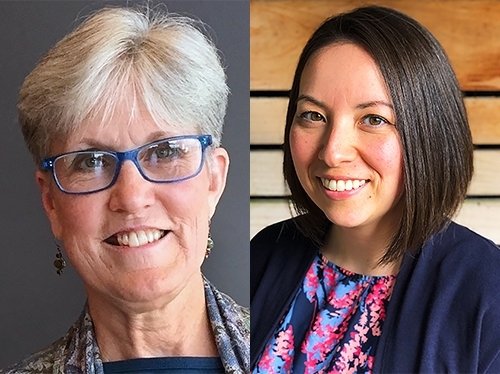

Dixie Whetsell, MS, IBCLC, has a Master’s Degree in Community Health Education from the University of Oregon. She began working with breastfeeding families in 1992 and became an IBCLC in 1998. She has worked as a lactation consultant in a variety of settings including private practice, county and state public health programs and high risk maternal and pediatric hospitals. She began teaching lactation training courses in 2003 and is currently an adjunct faculty member teaching in the Pathway 2 Lactation Training Program in the OHSU-PSU School of Public Health at Portland State University. She is a past presenter for the GOLD Perinatal Conference. She is an active member of the Oregon Washington Lactation Association, the US Lactation Consultant Association and the International Lactation Consultant Association. She was a founding Board Member for Northwest Mothers Milk Bank, a HMBANA non-profit donor milk bank.
Lisa Gonzales, BSN, RN, IBCLC earned her Bachelor of Science in Nursing from Linfield College. She started her nursing career as a Labor and Delivery nurse at a Level III OB hospital in 2006. After having her first baby, Lisa pursued lactation education and became an IBCLC in 2013. She made full career change in 2015 to become a lactation nurse in a high risk maternity and pediatric hospital, providing inpatient and outpatient consults to growing families. She is an active member of the Oregon Washington Lactation Association, the US Lactation Consultant Association and the International Lactation Consultant Association. Lisa currently helps families during in-home visits with her private practice.
This case describes a 32-year-old primiparous woman who experienced an anaphylactic reaction associated with breastfeeding and milk expression on postpartum day four. With each episode her symptoms worsened and she developed hives, edema and difficulty breathing and swallowing. She had to be treated for her anaphylactic reaction in a hospital ER and ICU and she was released on postpartum day five on antihistamines.
Lactation anaphylaxis is a very rare condition that was first reported in the scientific literature in 1991. Since then there have been 11 other reported cases. Lactation anaphylaxis can be life-threatening and symptoms can include a rash, hives, edema resulting in difficulty breathing or swallowing, a dangerous decrease in blood pressure and a loss of consciousness. We will review this case and do a brief review of the previous case reports. We will discuss the possible causes for lactation anaphylaxis, the related risk factors, common treatments and possible breastfeeding outcomes. In most cases with proper treatment and management breastfeeding and milk expression can continue. Enhanced awareness of and knowledge about this rare condition will allow lactation consultants and other members of the health care team to better support breastfeeding parents who experience lactation anaphylaxis.

View Details / Enroll






